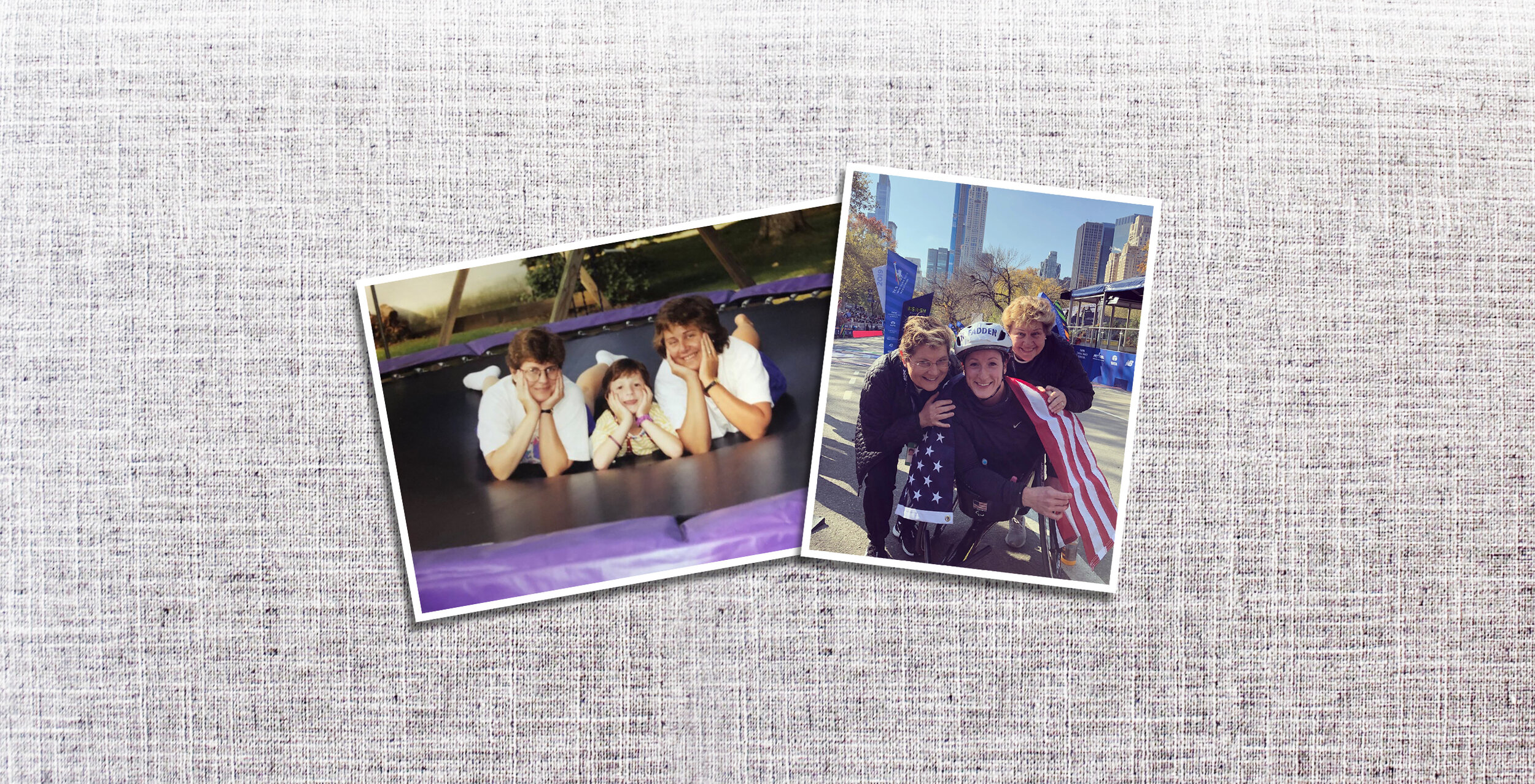
ADOPTION
& INCLUSION
Adoption and Inclusion
Throughout Tatyana’s career, she has been guided by two fundamental beliefs. First, that every child should have the benefit of growing up as a member of a loving family, regardless of how the word “family” is defined. Second, all people should be welcomed as equal participants in all that society has to offer. These fundamental beliefs have become the Tatyana’s platform. In every presentation, public appearance, and interview she advocates for her sport, for full inclusion, and for universal adoption.
Inclusion
When Tatyana moved to America, she moved to a country that was proud of its commitment to serving people with disabilities. The Americans with Disabilities Act (ADA) became law in 1990 and many sectors had put in place plans to accommodate people with disabilities. However, when Tatyana arrived on the scene, the practice had not yet caught-up with the law. Various service providers, including teachers, did not really know what full inclusion meant, let alone how to make needed accommodations to insure equal access.
Tatyana’s mother served as her primary advocate. When Tatyana was young, her mother worked with schools to help them understand how to accommodate a student in a wheelchair. Accommodations were made at Girl Scout Camp, at other afterschool and summer programs, and at the local church. All was going well until Tatyana tried to join the track team at her High School. .
Her High School would not allow her to join the Track Team or race at the same time as able-bodied runners. Feeling that this was unfair and inconsistent with the spirit and the intent of the Americans with Disabilities Act, in 2005 Tatyana and Deborah McFadden filed suit against the Howard County Public School System and won the right for her to race with her fellow classmates. U. S. District Court Judge Andre Davis stated “She’s not suing for blue ribbons, gold ribbons or money—she just wants to be out there when everyone else is out there.”
McFadden’s lawsuit is credited for the eventual passage of the Maryland Fitness and Athletics Equity for Students with Disabilities Act, requiring schools to give students with disabilities the opportunity to compete in interscholastic athletics.
Tatyana went on to press for federal legislation so that other students with disabilities across the USA would have equal access. In 2013 it was passed and now all students with disabilities will have opportunities to be involved with sports in school.
Tatyana has given multiple speeches to advocacy groups been recognized for her work on behalf of people with disabilities.
Adoption
Born with a hole in her spine caused by spina bifida, Tatyana spent the first six years of her life in a Russian orphanage with virtually nothing, not even a wheelchair. Paralyzed from the waist down, and with no other way to move, she learned to walk on her hands simply to keep up with the other children. Little did she know that the powerful arms and hands she began to develop as a small child would someday carry her around the globe as one of the world’s greatest athletes.
In 1994, Deborah McFadden, then Commissioner of Disabilities for the U.S. Department of Health, came upon Tatyana while visiting her orphanage on an otherwise routine business trip. She felt a connection, an inexplicable feeling that they were meant to be together. Deborah adopted Tatyana, brought her to the United States and gave her both a wheelchair and a new start on life.
It wasn’t long after Tatyana arrived in America that she realized how fortunate she was to be adopted into a loving family that believed she could do anything. Even as a young girl she inquired about the children she left behind in Orphanage 13 – and children in other orphanages, wishing out loud that everyone could be adopted.
She is a vocal advocate for adoption, leading the ultimately unsuccessful effort against a 2012 Russian law to prohibit adoptions of Russian children by American parents. She has spoken to multiple adoption, foster care, and advocacy groups including the Congressional Coalition on Adoption. She has received multiple recognitions for her work in this area.



